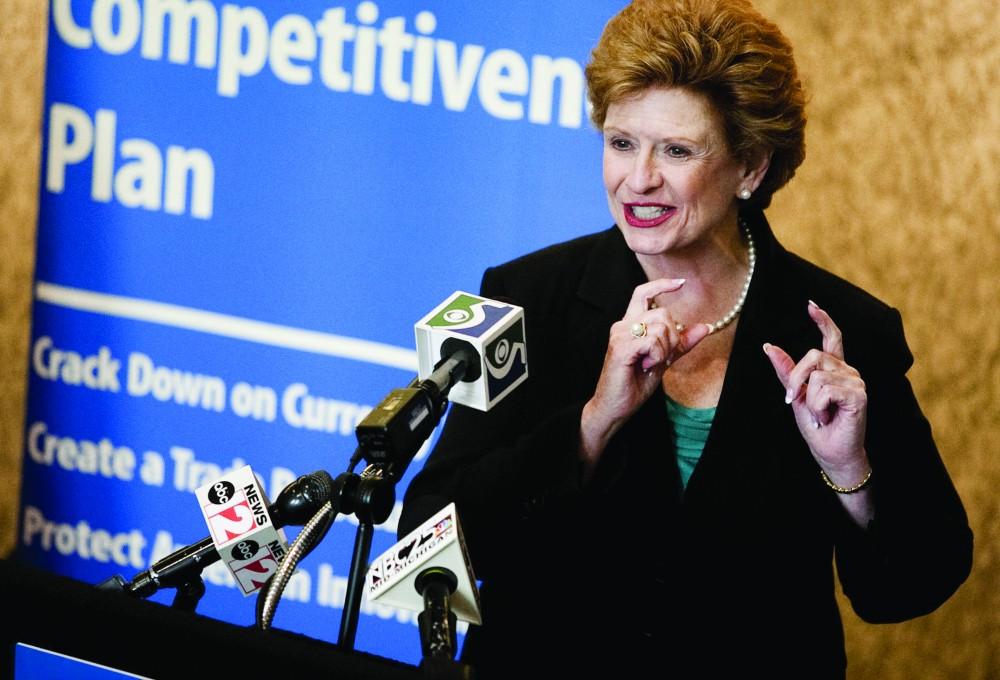U.S. Senate debate halted

Courtesy / MLive.com Debbie Stabenow
Oct 10, 2012
Due to discrepancies between both U.S. Senate candidates, Grand Valley State University’s biyearly U.S. Senate debate will be put on hold until both parties can agree to the terms and dates of the event.
“We have done the U.S. Senate debates since 1996 and there have been issues of negotiating between parties in the past but never for this long,” said Ken Kolbe, assistant general manager of WGVU TV.
The debate, which would be between Senator Debbie Stabenow and former House Representative Pete Hoekstra, does not have a set date and will not happen until both sides can agree on when the debate would be and the overall format.
Even though the debate has been placed on hold, the topic of different debates have been discussed by both parties, just not with each other.
In an Aug. 17 press release, Hoekstra called for six debates to be held against Stabenow across the state to discuss “serious economic challenges that the country continues to face” and “the solutions we need to get Michigan families working again.”
Stabenow declined the offer for the six debates but has accepted two different debates within the state. “We look forward to debating the issues important to Michigan families at the Detroit Economic Club and at Grand Valley State University, as candidates have done in Michigan’s last five senate elections,” said the Stabenow campaign’s Communications Director Cullen Schwarz in a press release.
The only issue is that Hoekstra has not accepted the two debates.
“Hoekstra came out and said he wanted six debates but Stabenow said no,” Kolbe said. “Now, Hoekstra has accepted offers to other debates but not the two that Stabenow has agreed to.”
While the structure of the debate at GVSU is still up in the air because of negotiations, Kolbe said in the past it has been done a variety of different ways.
“In the past we have done it before a panel of journalists, with or without a mediator, before live audiences, sometimes with questions or with questions read by a mediator, and sometimes without questions,” Kolbe said. “The format is negotiated by the candidates and can also depend on how much time we have to set it up.”
This year’s debate would most likely happen in the WGVU studio and will be broadcast on seven different stations across the state but in the past, the event has been held in the Loosemore Auditorium and in the L.V. Eberhard Center.
[email protected]





















